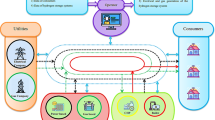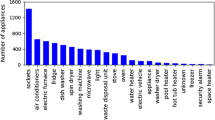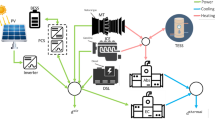Abstract
Resources in a computational grid system fall under the purview of different administrative domains of varying policies for their usages. Commercial grid offers their services (resources) on use-and-pay basis. Resource management in computational grid, offers a market place for the two prominent grid market players i.e. resource provider and resource consumer. It has been observed that, in the grid, the request for the resources may not be uniform throughout. It fluctuates from very high demand at peak time to low or negligible at off-peak time. This information may be used to fetch the resource utilization and cost benefits out of the grid. The provider would prefer to charge extra for its resources at peak time, whereas users may shift their resources usage preference to off-peak time. This work proposes a model in which the resource provider and consumer play a non-cooperative game at different time-zones and act independently to choose their actions. Some characteristic parameters such as cost, execution time and reliability have been considered to facilitate the job execution. Based on the outcome of the game, the grid cluster offering maximum reliability within the desired execution time and/or cost for the job execution. The model has been simulated for performance evaluation with quite encouraging results.













Similar content being viewed by others
References
Raza, Z., Vidyarthi, D.P.: A fault tolerant grid scheduling model to minimize turnaround time. In: International Conference on High Performance Computing, Networking and Communication Systems, HPCNCS, Orlando, USA, pp. 167–175, July 7–10 2008
Foster, I.: The grid: a new infrastructure for 21st century science. Phys. Today 55, 42–47 (2002)
Izakian, H., Ladani, B.T., Zamanifar, K., Abraham, A., Snasel, V.: A continuous double auction method for resource allocation in computational grids. In: IEEE Symposium on Computational Intelligence in Scheduling, 2009, CI-Sched’09, pp. 29–35. Nashville, TN, USA (2009)
Sharma, R., Soni, V.K., Mishra, M.K., Bhuyan, P.: A survey of job scheduling and resource management in grid computing. World Acad. Sci. Eng. Technol. 64, 461–466 (2010)
Buyya, R.: Economic-Based Distributed Resource Management and Scheduling for Grid Computing. Ph.D. Thesis, Monash University Melbourne Australia (2002)
Venugopal, S., Chu, X., Buyya, R.: A negotiation mechanism for advance resource reservations using the alternate offers protocol. In: 16th International Workshop on Quality of Service, 2008, IWQoS 2008, pp. 40–49. Enschede, The Netherlands (2008)
Ghosh, P., Roy, N., Das, S. K., Basu, K.: A game theory based pricing strategy for job allocation in mobile grids. In: Proceedings of the 18th International Symposium on Parallel and Distributed Processing, Santa Fe, New Mexico, p. 82. 26–30 April 2004
Xiao, L., Zhu, Y., Ni, L.M., Xu, Z.: Incentive-based scheduling for market-like computational grids. IEEE Trans. Parallel Distrib. Syst. 19(7), 903–913 (2008)
Li, J., Yahyapour, R.: Negotiation strategies for grid scheduling. In: Advances in Grid and Pervasive Computing, Springer, New York, pp. 42–52 (2006)
Buyya, R., Abramson, D., Venugopal, S.: The grid economy. Proc. IEEE 93(3), 698–714 (2005)
Khan, S.U., Ahmad, I.: Non-cooperative, semi-cooperative, and cooperative games-based grid resource allocation. In: 20th International Parallel and Distributed Processing Symposium, IPDPS 2006, Rhodes Island, Greece p. 10, 25–29 April 2006
Reddy, S.R.P., Gupta, A.: Auction based resource allocation in grids. In: Distributed Computing and Networking, Springer, Berlin , pp. 145–156 (2006)
Subrata, R., Zomaya, A.Y., Landfeldt, B.: Game-theoretic approach for load balancing in computational grids. IEEE Trans. Parallel Distrib. Syst. 19(1), 66–76 (2008)
Garg, S.K., Venugopal, S., Broberg, J., Buyya, R.: Double auction-inspired meta-scheduling of parallel applications on global grids. J. Parallel Distrib. Comput. 73(4), 450–464 (2013)
Izakian, H., Abraham, A., Ladani, B.T.: An auction method for resource allocation in computational grids. Future Gener. Comput. Syst. 26(2), 228–235 (2010)
Yang, M., Liu, Y., Ma, X., Li, L., Zhai, L.: Research on grid resource allocation based on equivalent price. In: International Colloquium on Computing, Communication, Control, and Management, 2009, CCCM 2009. ISECS, pp. 148–152 (2009)
Montes, J., Sánchez, A., Perez, M.S.: Grid global behavior prediction. In: 11th IEEE/ACM International Symposium on Cluster, Cloud and Grid Computing (CCGrid), CA, USA, pp. 124–133, 23–26, May 2011
Sim, K.M.: Grid resource negotiation: survey and new directions. IEEE Trans. Syst. Man Cybern. Part C 40(3), 245–257 (2010)
Sim, K.M.: Grid commerce, market-driven G-negotiation, and grid resource management. IEEE Trans. Syst. Man Cybern. Part B 36(6), 1381–1394 (2006)
Sim, K.M., Ng, K.F.: A relaxed-criteria bargaining protocol for grid resource management. In: Sixth IEEE International Symposium on Cluster Computing and the Grid, 2006, CCGRID 06, Singapore, Piscataway, New Jersey US, vol. 2, pp. 5–8. IEEE, 16–19 May 2006
Adabi, S., Movaghar, A., Rahmani, A.M., Beigy, H.: Negotiation strategies considering market, time and behavior functions for resource allocation in computational grid. J. Supercomput. 66(3), 1350–1389 (2013)
Foster, I., Kesselman, C., Lee, C., Lindell, B., Nahrstedt, K., Roy, A.: A distributed resource management architecture that supports advance reservations and co-allocation. In: Seventh International Workshop on Quality of Service, IWQoS’99, UCL London, pp. 27–36, 1–4 Jun 1999
Depoorter, W., Vanmechelen, K., Broeckhove, J.: Advance reservation, co-allocation and pricing of network and computational resources in grids. Future Gener. Comput. Syst. 41, 1–15 (2014)
Son, S., Sim, K.M.: Relaxed time slot negotiation for grid resource allocation. In: Grid and distributed computing, Springer, New York, pp. 25–32 (2009)
Wang, Y., Bahati, R., Bauer, M.: A novel deadline and budget constrained scheduling heuristics for computational grids. J. Cent. South Univ. Technol. 18(2), 465–472 (2011)
Baghban, H., Hashemi, M.: A non-cooperative bargaining model for grid resource allocation. In: IEEE Colloquium on Humanities, Science and Engineering (CHUSER)
Garg, S.K., Buyya, R., Siegel, H.J.: Time and cost trade-off management for scheduling parallel applications on utility grids. Future Gener. Comput. Syst. 26(8), 1344–1355 (2010)
Parsa, S., Shokri, A., Nourossana, S.: A novel market based grid resource allocation algorithm. In: First International Conference on Networked Digital Technologies, 2009, NDT’09, Ostrava, Czech Republic, pp. 146–152, 28–31 July 2009
Haghtalabi, S., Javidan, R., Harounabadi, A.: A new resource allocation model for grid networks based on bargaining in a competitive market. J. Soft Comput. Appl. 2014(1), 1–17 (2014)
Ding, D., Luo, S., Gao, Z.: A greedy double auction mechanism for grid resource allocation. In: Job Scheduling Strategies for Parallel Processing, pp. 35–50. Springer, Berlin (2010)
Haque, A., Alhashmi, S.M., Parthiban, R.: A survey of economic models in grid computing. Future Gener. Comput. Syst. 27(8), 1056–1069 (2011)
Samimi, P., Patel, A.: Review of pricing models for grid & cloud computing. In: IEEE Symposium on Computers & Informatics (ISCI), pp. 634–639. Kuala Lumpur, Malaysia, 20–23 March 2011
Abba, H.A., Zakaria, N.B., Haron, N.: Grid resource allocation: a review. Res. J. Inf. Technol. 4(2), 38–55 (2012)
Kaushik, A., Vidyarthi, D.P.: A model for resource management in computational grid for real time jobs using game theory. Int. J. Grid Utility Comput. (IJGUC) 6(3–4), 232–248 (2015)
Raza, Z., Vidyarthi, D.P.: Reliability based scheduling model (RSM) for computational grids. Int. J. Distrib. Syst. Technol. (IJDST) 2(2), 20–37 (2011)
Meddeber, M., Yagoubi, B.: Tasks assignment for Grid computing. Int. J. Web Grid Serv. 7(4), 427–443 (2011)
Vidyarthi, D.P., Sarker, B.K., Tripathi, A.K., Yang, L.T.: Scheduling in distributed computing systems: analysis, design and models. Springer, New York (2008)
Sim, K.M.: A survey of bargaining models for grid resource allocation. ACM SIGecom Exch. 5(5), 22–32 (2006)
Ma, L., Li, X.: Bargaining-based E-content pricing for 3G data services. In: International Conference on Advanced Computer Theory and Engineering, 2008, ICACTE’08, Phuket Thailand, pp. 79–83, 20-22, Dec 2008
Author information
Authors and Affiliations
Corresponding author
Rights and permissions
About this article
Cite this article
Kaushik, A., Vidyarthi, D.P. A model for resource management in computational grid using sequential auction and bargaining procurement. Cluster Comput 21, 1457–1477 (2018). https://doi.org/10.1007/s10586-017-1467-2
Received:
Revised:
Accepted:
Published:
Issue Date:
DOI: https://doi.org/10.1007/s10586-017-1467-2




